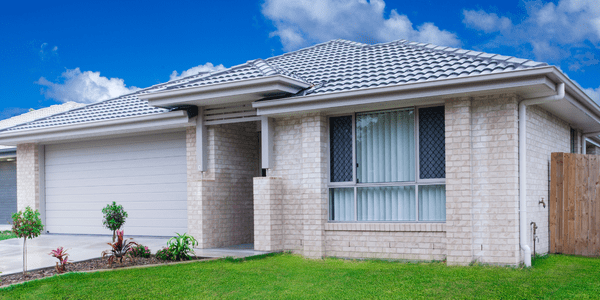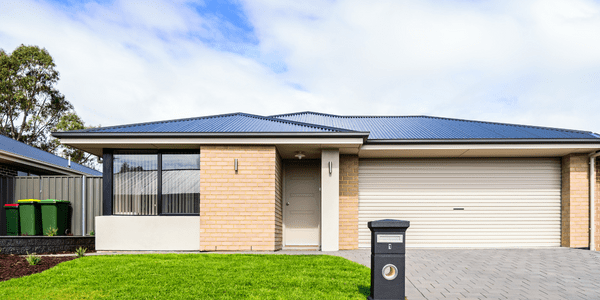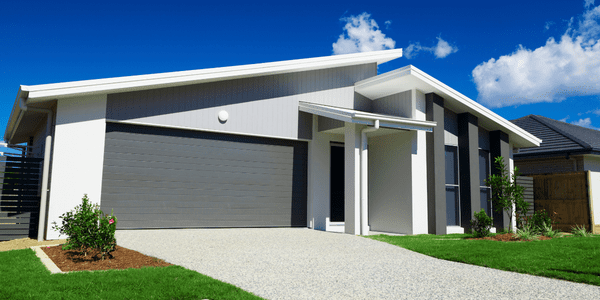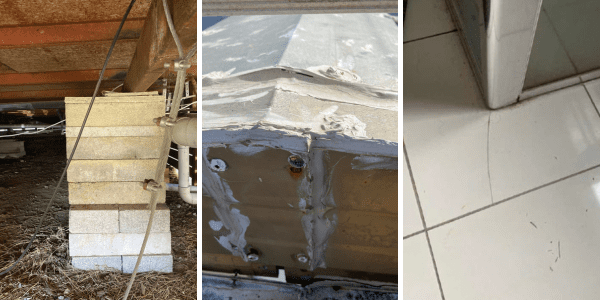Building Inspection Myths
The 7 most common building inspection myths
There are many building inspection myths that people believe which leads them to ignore or miss major defects in their home or commercial property.
1. New houses are in good condition and don't need inspections
A commonly held myth is that because your house is new, it will be in perfect condition and does not require an inspection.
While this may seem logical, it is mistaken. New homes can have defects too.
Unfortunately, new homes are built subject to the builder’s interpretation of quality workmanship and industry standards. In addition, the construction company may have cut corners by using poor quality materials or cheaper, less qualified, inexperienced builders.
Even more experienced builders can do work not up to standard when they are faced with contract deadlines that require them to rush the building process.
2. A new house will have already been inspected
There is a common belief that laws and regulations require new homes be inspected by a building certifier.
Whilst building certifiers ensure the building is code compliant, they do not necessarily inform the home owner of any faults within the building.
They make sure a building meets government regulations around height, character, and any other legislative requirements.
They do not examine the quality of the workmanship.
3. The seller will tell me about any defects
It is a common belief that when someone buys a house, the seller is required to mention any defects present. This is not the case in Queensland. The vendor has no obligation to advise the buyer of defects or previous termite attacks in the property.
Under current Queensland law, property sellers are not required to inform you of defects that “likely to be discovered by a buyer exercising reasonable care when inspecting the property”.
4. "I can rely on an inspection organised by the vendor"
It is not uncommon for a vendor or real estate agency to organise a building and pest inspection on a property, especially if it is going to auction. This report is then made available to the potential purchaser.
The report should always be done by an inspector of your choice for your own benefit. If you purchase a property using a report that is not in your own name, you cannot use the report for any legal recourse should you find that the inspection was not done satisfactorily, and visible defects were not included.
Therefore, you should make sure to seek out an independent inspector and have the report issued in your own name.
5. "I can do the inspection myself"
Unfortunately, there is nothing currently available on the market which guarantees 100% protection against termites. However, there are a few things you can do around your house to minimise the chance of termites. These include:
- Repair any leaking gutters, downpipes, taps or other plumbing around the property as termites love damp areas
- Ensure there is no timber or wooden debris lying up against the house or around the yard
- Ensure water tanks, down pipes and air conditioning overflows divert properly to a drain
- Cut back any branches that overhang your roof as termites can use these branches to enter your home through the roof
- Locate or relocate mulch and garden beds away from alongside the house, if possible
- Repair any timber fungal decay around the property and previous termite damage as termites can use old termite tracks to gain entry
6. A home inspection covers everything from plumbing, to the pool, electrical wiring to pests
There is also some confusion over what is covered by a building inspection.
A common belief is that your building inspector will inspect your plumbing, electrical wiring, and the existence of pests such as termites.
This belief is mistaken. A building inspection is undertaken by a qualified builder.
A building inspector will look at major and minor structural defects in your home.
Areas such as the internal rooms, ceiling roof void, house foundations and the exterior of the buildings are inspected.
However, a building inspector is not qualified to examine your pool. For this you should contact a pool expert.
A building inspector does not look at gas, fireplaces, or chimneys. Anyone who installs one of these must have a gas inspection certificate.
Likewise, a building inspector will not inspect plumbing. For this, consult a plumber.
Pest inspections are also different than building inspections and require different sets of qualifications.
However, there are building inspectors who are also qualified pest inspectors, as such it is possible to get a building and pest inspection.
7. "The inspector will tell me whether or not I should buy the house"
Your building inspector will not tell you whether you should purchase a property.
Ultimately, that is your decision to make.
However, having a detailed building inspection report that lists all major and minor defects will help you to make an informed decision.
This report can also be used as evidence when negotiating the price.
Contact us today
At Dedant, we provide quality building and pest inspections, annual timber pest inspections, pest control, handover inspections, termite treatment and management, meth testing and asbestos testing.
We have been servicing Brisbane, Redland Bay, Moreton Bay, Gold Coast, the Scenic Rim, Sunshine Coast, Ipswich and Logan since 2009.
Contact us on 07 3807 0122 or via our website.








